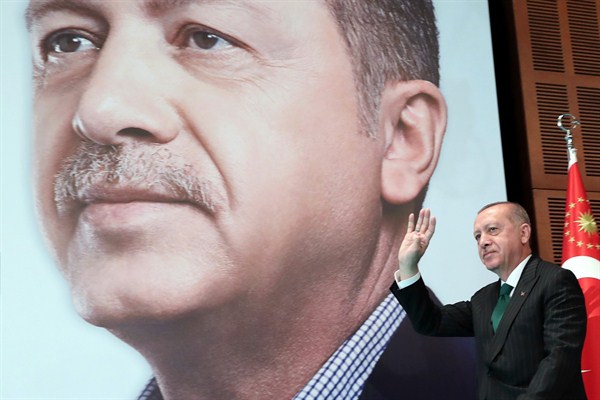ISTANBUL—After 17 years in power, Turkish President Recep Tayyip Erdogan and his governing Justice and Development Party, the AKP, face perhaps their toughest test yet. Voters in Istanbul will head to the polls again on June 23 to elect a mayor for the second time in three months, after Turkey’s Supreme Election Council controversially canceled the results of the March vote, which the opposition narrowly won. The Supreme Election Council cited irregularities, backing a complaint brought by Erdogan and his party. All 11 of the board’s members were appointed under Erdogan’s government.
Just as the opposition’s surprising win in Istanbul had raised new questions about how popular Erdogan and his party really are, the move to annul that victory and run the election again is the latest sign of democracy’s decline under Erdogan’s watch. The entire episode also casts a shadow over Turkey’s relations with both the European Union and the United States, while threatening to further destabilize an already dangerously rocky economy.
When Ekrem Imamoglu, the candidate from the main opposition Republican People’s Party, or CHP, won the Istanbul mayor’s race in late March by a margin of only 13,729 votes out of more than 8 million cast, it was the first time a non-Islamist candidate had won the post since Erdogan himself was elected mayor of the city in 1994. The AKP soon filed allegations of “serious irregularities,” charges that seemed absurd given the level of control the AKP enjoys over Turkey’s election infrastructure and the level of scrutiny over the ballots.

